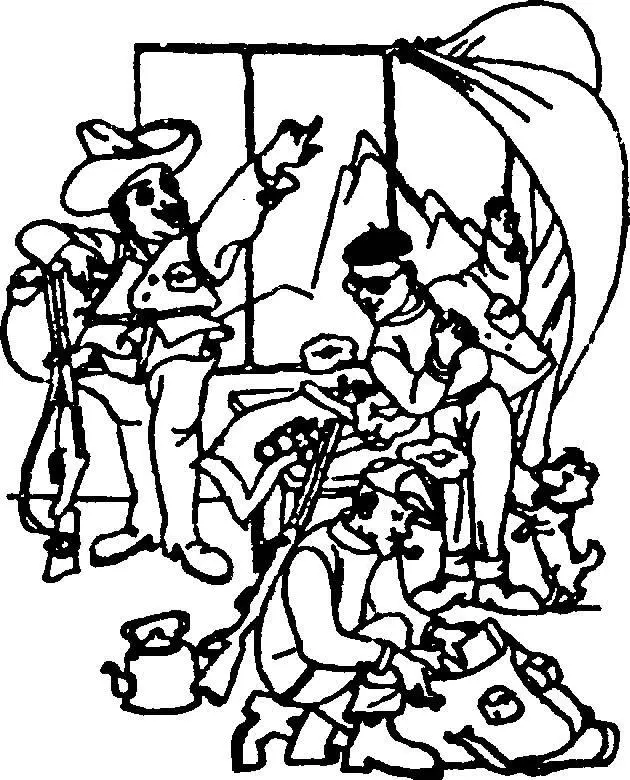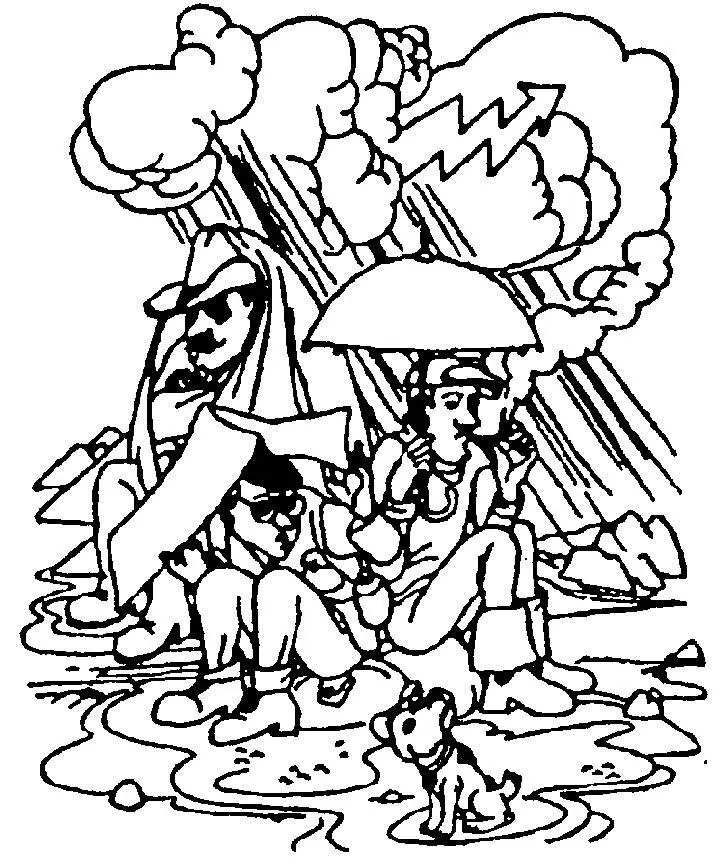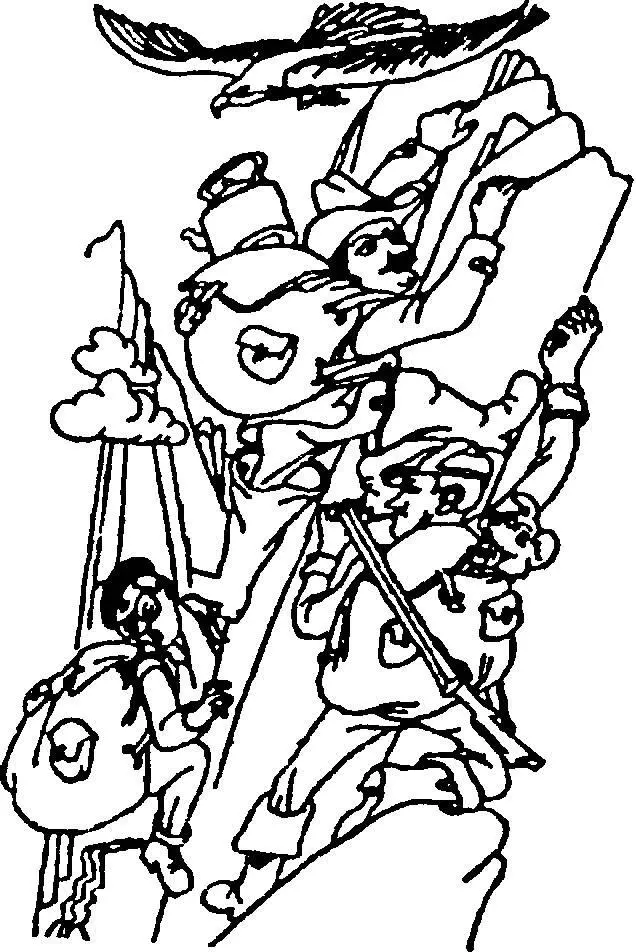Яков Аракин - Практический курс английского языка 2 курс
- Название:Практический курс английского языка 2 курс
- Автор:
- Жанр:
- Издательство:ВЛАДОС
- Год:2005
- ISBN:нет данных
- Рейтинг:
- Избранное:Добавить в избранное
-
Отзывы:
-
Ваша оценка:
Яков Аракин - Практический курс английского языка 2 курс краткое содержание
I - V курсов педагогических вузов.
Цель учебника – обучение устной речи на основе развития необходимых автоматизированных речевых навыков, развитие техники чтения, а также навыков письменной речи.
Практический курс английского языка 2 курс - читать онлайн бесплатно полную версию (весь текст целиком)
Интервал:
Закладка:
rise and fall of the waves; coming in to the harbour, that's all right for those that like it; when the
sea is rough; hitch-hiking; it's risky, isn't it! I prefer to be on the safe side; I'd rather stay at home.)
B. A person who has just returned from a foreign cruise is answering the questions of an
eager listener. (Use the following: a most exciting experience; I really envy you; do tell me all about
it, where did you sail from? what were your ports of colli go ashore; go sightseeing; what was the
place that impressed you most! I didn't think much of ...; the journey was tiring; but you did enjoy it,
didn't you!)
C. An old lady is talking to a porter at the railway platform. She keeps forgetting the name of
the place she is going to and does not quite know how many pieces of luggage she has. (Use the
following: will you see to my luggage? where for, madam? it just slipped my memory, it's a sort of
resort place; would you like me to have these trunks put in the luggage-van? where on earth is that
suitcase? it will never go on the luggage-rack; I must have a seat facing the engine; dear me, I'm
sure to miss the train; is it a through train? I hate to change; when are we due to arrive?)
X. а) Translate the following fragment into Russian in written form:
When your ship leaves Honolulu they hang 'leis' round your neck, garlands of sweet-smelling
flowers. The wharf is crowded and the band plays a melting Hawaiian tune. The people on board
throw coloured streamers to those standing below, and the side of the ship is gay with the thin lines
of paper, red and green and yellow and blue. When the ship moves slowly away the streamers break
softly, and it is like the breaking of human ties. Men and women are joined together for a moment,
by a gaily coloured strip of paper, red and blue and green and yellow, and then life separates them
and the paper is sundered, so easily, with a little sharp snap. For an hour the fragments trail down the
hull and then they blow away. The flowers of your garlands fade and their scent is oppressive. You
throw them overboard.
(From "The Trembling of a Leaf" by W. S. Maugham)
b) Compare the seeing-off ceremony described in the fragment with the one you read
about in the story "Seeing People Off".
c) Comment on the second part of the fragment beginning with the wordg "...it is like
the breaking of human ties". What does the description symbolize? Comment on the stylistic
aspect of the fragment.
XI. a) Read the text below and translate it into Russian orally:
A Sea Trip
"No", said Harris, "if you want rest and change, you can't beat a sea trip."
I objected to the sea trip strongly. A sea trip does you good when you are going to have a
couple of months of it, but, for a week, it is wicked.
You start on Monday with the idea that you are going to enjoy yourself. You wave an airy
adieu to the boys on shore, light your biggest pipe and swagger about the deck as if you were
Captain Cook, Sir Francis Drake, and Christopher Columbus all rolled into one. On Tuesday you
wish you hadn't come. On Wednesday, Thursday and Friday, you wish you were dead. On Saturday
you are able to swallow a little beef tea, and to sit up on deck, and answer with a wan, sweet smile
when kind-hearted people ask you how you feel now. On Sunday, you begin to walk about again,
and take solid food. And on Monday morning, as, with your bag and umbrella in your hand, you
stand by the gangway, waiting to step ashore, you begin to thoroughly like it.
I remember my brother-in-law going for a short sea trip once for the benefit of his health. He
took a return berth from London to Liverpool; and when he got to Liverpool, the only thing he was
anxious about was to sell that return ticket.
It was offered round the town at a tremendous reduction; so I am told; and was eventually
sold for eighteen pence to a youth who had just been advised by his medical man to go to the
seaside, and take exercise.
"Seaside!" said my brother-in-law, pressing the ticket affectionately into his hand; "why,
you'll get enough to last you a lifetime; and as for exercise! why, you'll get more exercise, sitting
down on that ship, than you would turning somersaults on dry land.
He himself — my brother-in-law — came back by train. He said the North-Western Railway
was healthy enough for him.
(From "Three Men in a Boat" by
Jerome K. Jerome. Adapted)
b) Answer the following questions:
1. What made the narrator object to the sea trip? 2. Why did his brother-in-law sell his return
ticket? 3. How did he describe the advantages of a sea trip to the youth who bought his ticket?
c) Point out the Hues and passages that you consider humorous. Is it humour
of situation or humour of words! (Analyse each case separately.)
XII. Speak individually or arrange a discussion on the following:
1. What attracts people in the idea of travelling?
2. Is the romantic aspect of travelling still alive in our time?
3. The celebrated travellers of the past.





4. Where and how would you like to travel?
ХIII. Try your hand at teaching.
1. Arrange and run a conversation on the following text:
The Only Way to Travel Is on Foot
When anthropologists turn their attention to the twentieth century, they will surely choose the
label "Legless Man". Histories of the time will go something like this: "In the twentieth century
people forgot how to use their legs. Men and women moved about in cars, buses and trains from a
very early age. The surprising thing is that they didn't use their legs even when they went on holiday.
They built cable railways, ski-lifts and roads to the top of every huge mountain."
The future history books might also record that we did not use our eyes. In our hurry to get
from one place to another, we failed to see anything on the way. Air travel 0ves you a bird's-eye view
of the world. Car drivers in particular, never want to stop. The typical twentieth-century traveller is
the man who always says 'I've been there' — meaning, "I drove through it at 100 miles an hour on
the way to somewhere else."
When you travel at high speeds the present means nothing: you live mainly in the future,
because you spend most of your time looking forward to arriving at some other place. But actual
arrival when it is achieved, is meaningless. You want to move on again. The traveller on foot, on the
other hand, lives constantly in the present. He experiences to present moment with his eyes, his ears
and the whole of his body. At the end of his journey he feels a delicious physical weariness. He
knows that sound satisfying sleep will be his: the just reward of all true travellers.
Arguments:
For:
Against:
1. Even on holiday: cable railways, ski-lifts,
1. Foolish to climb a mountain when there's a railway
roads to tops of mountains.
or road up it
2. When travelling at high speeds present means
2. Travelling at high speeds is a pleasure in itself.
nothing: life in future.
3. Traveller on foot: lives constantly in present
3. Travelling on foot: exhausting: you get nowhere fast
4. Typical twentieth-century traveller: "I've been
4. It's now possible to see many countries, meet people
there." Italy, Delhi, Irkutsk; through at 100 miles anof all nationalities.
hour.
2. Think of some other arguments and counter-arguments to carry on the discussion.
(See "Classroom English", Section IX.)
XIV. A. Do yon know how to act sensibly when out in the wilds? If not, the text
below might help you:
If you are setting off on a walking tour, take a compass, a map and first-aid equipment with
you. Even the most experienced can lose their way in the vast uninhabited areas. If you get lost don't
lose your head. Instead be sensible, try to give some indication of where you are and keep yourself
warm. And remember: never go off alone, and inform someone at your point of departure where you
intend to go, and what route you intend to take.
B. Describe the pictures. Use the suggested phrases.
С See if the travellers have acted sessibly. Support your idea.
a) give me a walking tour every time; you can't beat (hitch-) hiking; need you take so much
luggage? b) to get to wild, uninhabited places; to be hardly able to go on; to be nearly drowned in a
swamp; unimaginable hardships; to overcome the obstacles; c) there was a turn in the weather, it
was pouring; flashes of lightning, rolls of thunder, I wish I were in a railway carriage now!; d) to
climb the steepest rocks; to face the danger of...; to get to places where no man's foot has ever
stepped; e) to reach the top in safety, to be hardly able to believe one's eyes; you could knock me
down with a feather.
STUDIES OF WRITTEN ENGLISH
VIII
Different patterns of writing (see "Studies" in Unit One) seldom occur alone, more often they
blend into one another, especially in letter writing.
Letteris a specific kind of written composition involving a concrete writer, message and a
concrete reader. In many ways it is a free composition. A letter is in a sense, a theme, governed by
the same rules of writing that govern every other kind of composition. It must be clear, well
organized, coherent. And it should be interesting.
But a letter is also governed by certain other laws, or conventions of usage, which the letter
writer cannot ignore.
These are the parts of a letter: the heading, the inside address, the greeting, the body of the
letter, the complimentary close, the signature.
For each of these parts usage has prescribed certain set forms depending on different types of
letters — personal or business letters, informal or formal social notes.
The heading.The parts of a heading, written in the following order, are the street, address,
Читать дальшеИнтервал:
Закладка:





![Владимир Аракин - Практический курс английского языка 3 курс [calibre 2.43.0]](/books/1072035/vladimir-arakin-prakticheskij-kurs-anglijskogo-yazyk.webp)




